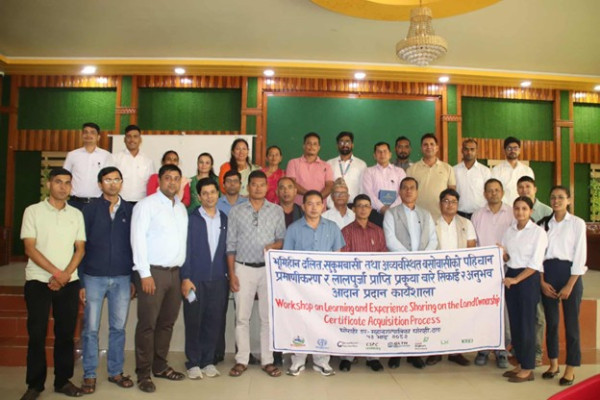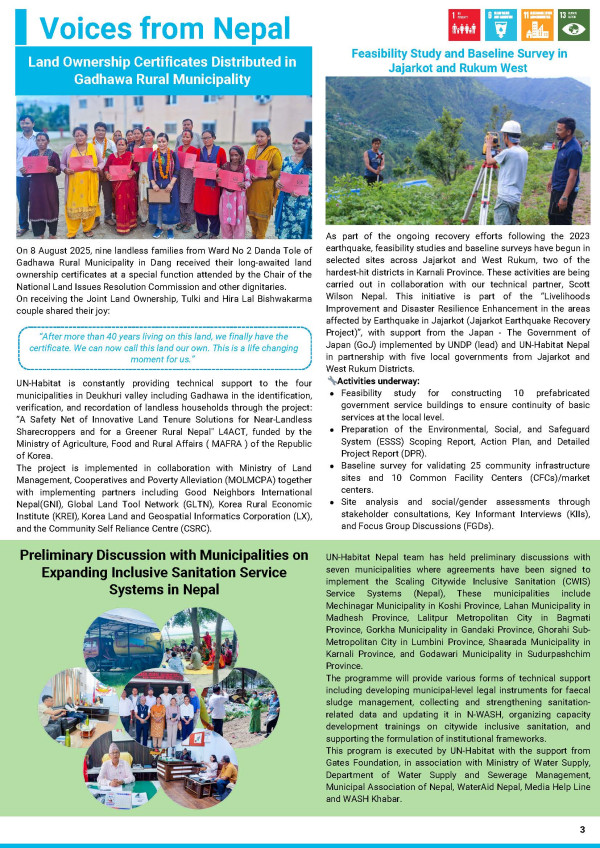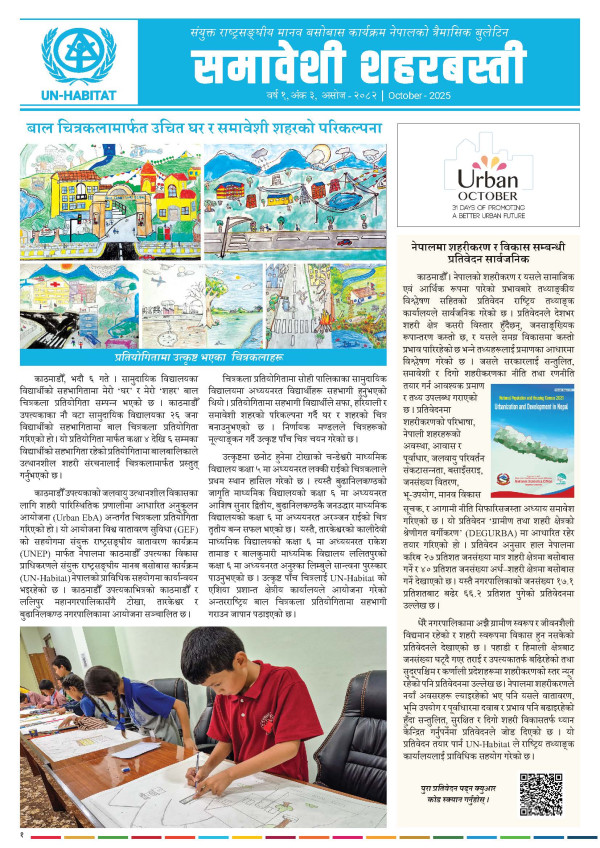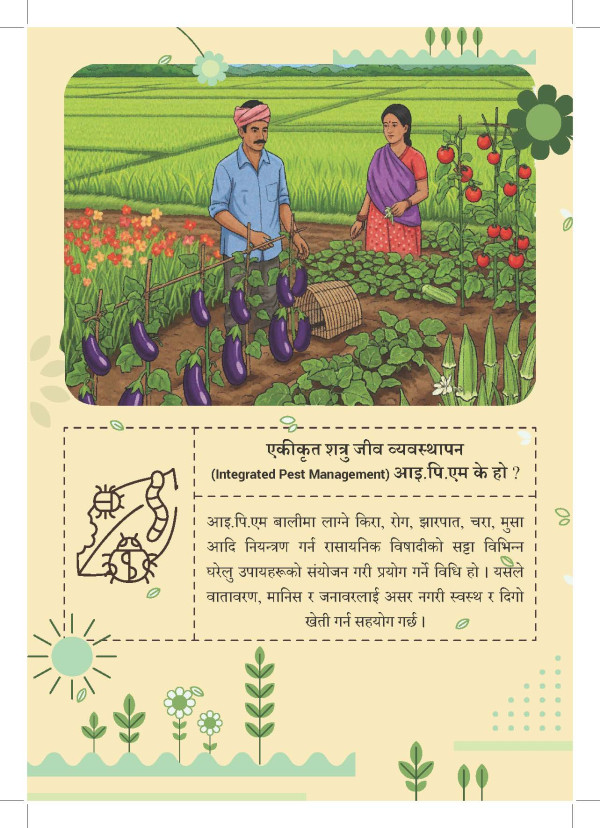District workshop strengthens local capacity for land ownership certification process in Nepal's Dang district

The Dang District Committee of Land Issues Resolving Commission in Nepal has convened a learning-sharing workshop inviting municipal leaders and technical experts of different municipalities in the district to accelerate efforts in secured land tenure for landless communities, as a follow up to the final 35-days’ notice issued by the Commission on 15 August 2025. The workshop was organized with the support of UN-Habitat Nepal at the request of the Dang District Land Issues Resolving Commission Committee on 29 August, 2025 at Ghorahi. It brought together 54 participants from different municipalities of Dang district to exchange experiences on the Identification, Verification, and Recordation (IVR) process- a critical step toward issuing Land Ownership Certificates to landless Dalits, Sukumbasi, and informal land tenure holders.
Municipal authorities from Lamahi, Gadhawa, Rapti, and
Rajpur and the project staffs shared best practices from their learning on the IVR
initiatives undertaken through the UN-Habitat project funded by Ministry of
Agriculture, Food and Rural Affairs (MAFRA) of Government of South Korea, while
other local governments raised interest on technical guidance on advancing the
process in their jurisdictions.
Secured Land Tenure towards breaking cycles of poverty
"Landlessness remains one of the most pressing causes
of poverty and inequality in Nepal," organizers noted in the workshop
background, emphasizing how lack of secure land tenure hinders agricultural
innovation, sustainable livelihoods, and inclusive development.
Mr. Puran Chaudhary, Member Secretary of the District Committee
of the Land Issues Resolving Commission and Chief of the District Survey
Office, outlined the sequential steps required for IVR process, clarifying how
local governments and technical agencies must coordinate to ensure timely land
certification.
Mr. Jagat Deuja, previously an Expert Member Land Issues Resolving Commission and currently Executive Director of project implementing partner Community Self Reliance Centre (CSRC), facilitated discussions on the legal and institutional framework governing IVR, including the newly introduced Land Bill 2082, while stressing the importance of inclusive approaches in reaching marginalized communities.
A historic milestone
The Chairperson of the District Committee of the Land Issues
Resolving Commission described the gathering as "a milestone event in the
district's journey toward land tenure security," marking the first time
all ten municipalities had come together to share knowledge on land rights and
ownership certification.
On behalf of the participants, municipal leaders from
Tulsipur and Ghorahi Sub-Metropolitan Cities, and Chairpersons of Banglachuli,
Gadhwa, and Rapti Rural Municipalities, expressed readiness to advance IVR
processes while calling for continued technical support.
"This first-ever district-level learning and sharing workshop among all ten local levels of Dang" received recognition for its role in strengthening municipal capacity, according to the Commission chair, who extended appreciation to UN-Habitat Nepal for its partnership through the ongoing project funded by MAFRA.
Urgent call for action
The Committee Chair urged all local governments to effectively facilitate the final IVR call and adhere to established deadlines, highlighting the urgency of securing land rights for vulnerable communities. The workshop reinforced collaboration between the District Land Issues Resolving Commission, Survey Office, Land Revenue Office, and the municipalities as a partnership which all participants identified as essential for advancing inclusive land governance across the district. Representatives from civil society organizations including CSRC, Land Rights Forum, and Society Welfare Action Nepal (SWAN) joined government officials in the knowledge-sharing exercise, underscoring the multi-stakeholder approach needed to address land tenure insecurity in Nepal.





